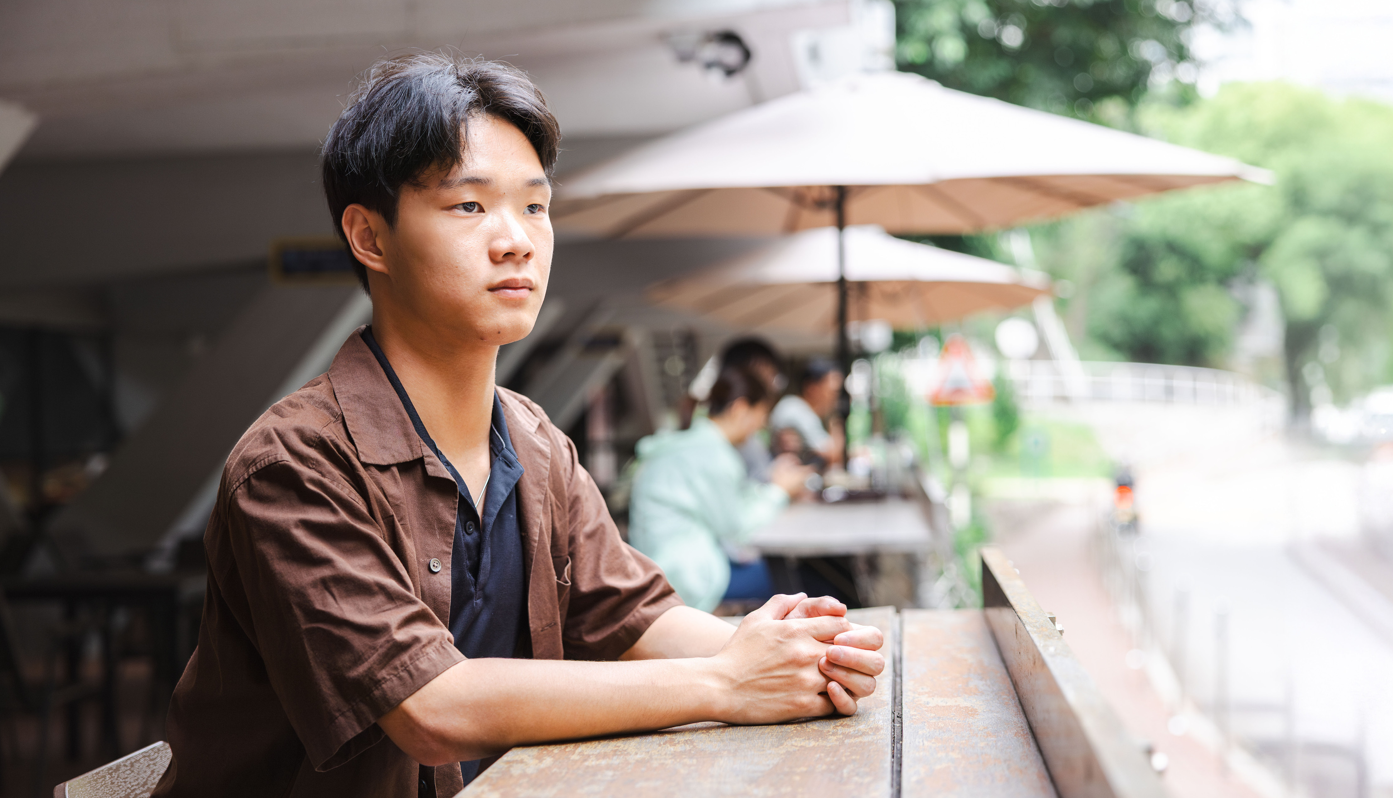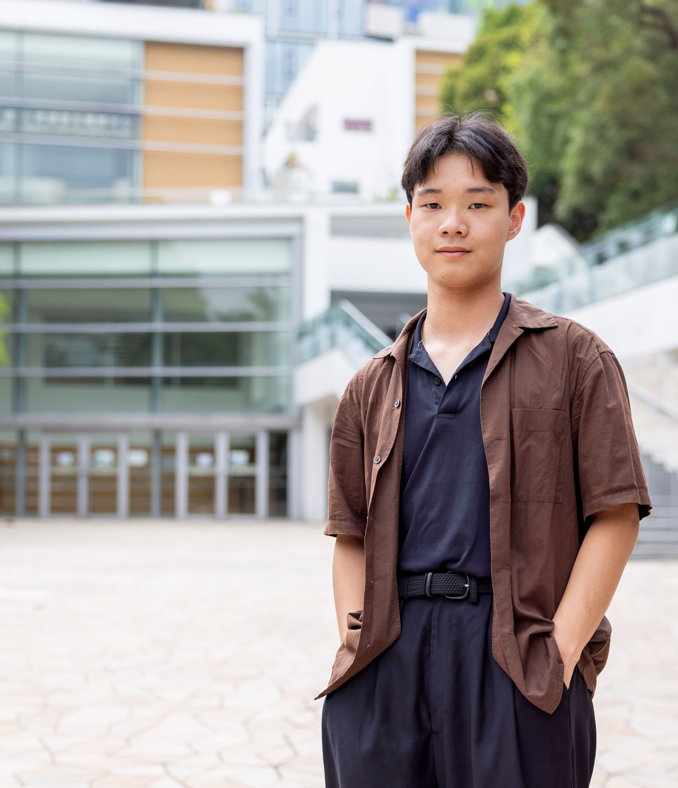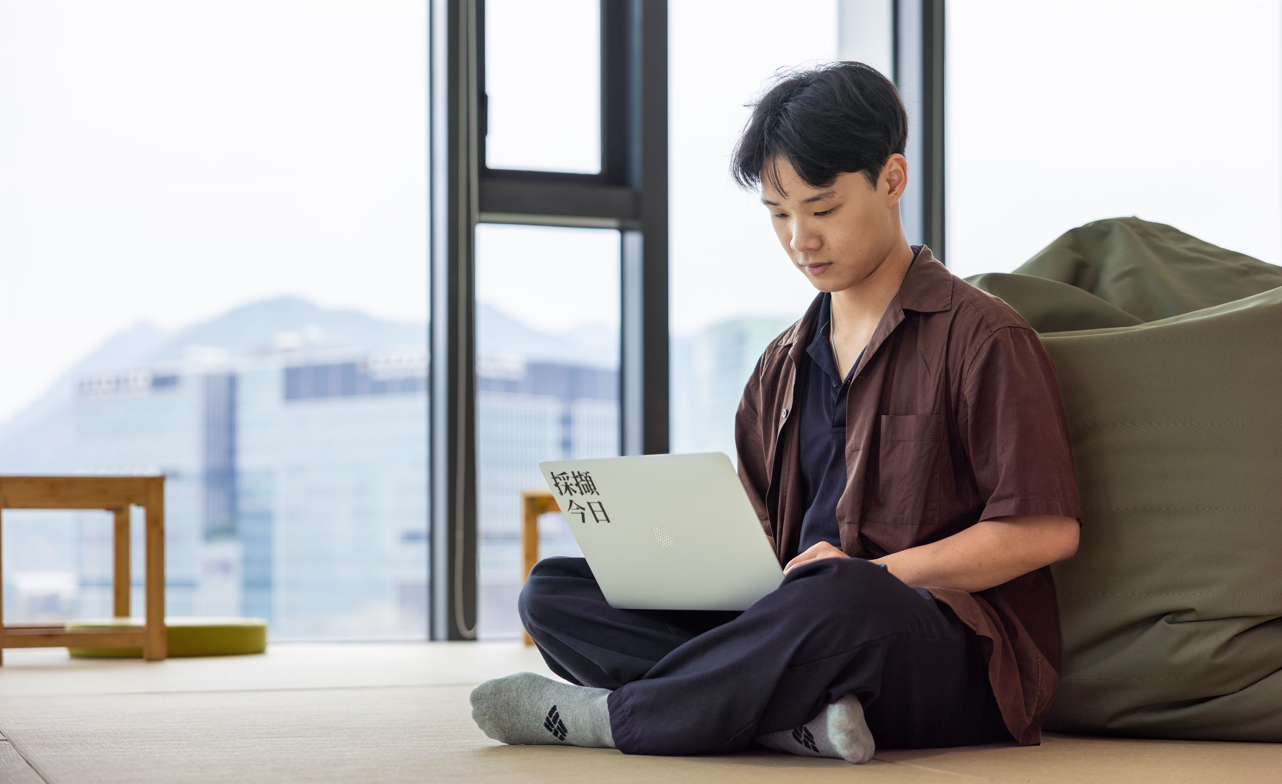

Environmental education or simple resource recycling is often proposed for campus environmental activities. However, Mr. Kelvin Tang (Cell and Molecular Biology/ 3) focuses on professional ideas, dedicating his research to recycling and transforming techniques for kitchen waste oil. He had just been awarded first prize in the Green and Sustainable Innovation Ideas Competition for his entry.

Considering the limitations of conventional PAHs treatments, Kelvin designed a biodegradation solution using synthetic biology and succeeded in his experiment.
Q: Why did you choose kitchen waste oil as the focus for your award-winning project?
I chose kitchen waste oil as my research subject because I observed its growing environmental impact alongside its untapped potential as a resource. With changing food preferences in Hong Kong, especially the popularity of oil-heavy dishes like spicy hot pot, waste oil production has surged. Globally, enormous quantities of kitchen waste oil are generated annually, but most bypass proper recycling systems, burdening the environment and threatening ecological balance. More concerning is that high-temperature cooking creates potentially harmful polycyclic aromatic hydrocarbons (PAHs) and threatens public health. Current PAHs treatment technologies are typically energy-intensive and inefficient, making it difficult to achieve both environmental friendliness and effectiveness.
Q: Can you briefly describe the synthetic biology techniques used in your project?
For tackling PAHs in waste oil, I designed a biodegradation solution using synthetic biology. The core concept combines light-sensitive proteins with PAH-degrading enzymes. When exposed to specific blue light, the photosensitive protein acts as a precise switch, immediately activating the enzyme to efficiently eliminate PAHs. Compared to conventional energy-intensive physical and chemical treatments, this biocatalytic approach operates under milder conditions while significantly reducing energy consumption, embodying green chemistry principles.
Additionally, through genetic engineering, I optimised the metabolic pathways of microorganisms like yeast, essentially upgrading their “cellular factories”. These modified microorganisms effectively use degraded waste oil products as carbon sources to efficiently synthesise medium-chain fatty acids (MCFAs), particularly 10-hydroxydecanoic acid, which has valuable applications in pharmaceuticals, cosmetics, and bio-based materials. My strategy involves introducing key synthase genes and regulating cellular metabolism to direct carbon sources toward target products, enabling the green transformation of waste oils into high-value chemicals.

Kelvin stated that the Chung Chi service-learning programme deepened his insights into social issues, inspiring his research direction.
Q: How did you start your research? Can you briefly describe your progress?
This project evolved from my undergraduate coursework and was refined during preparations for the innovation competition. I consulted extensive academic literature and, as encouraged by the Faculty of Science to conduct students self-directed research, received valuable guidance from several professors. My internship at a Hong Kong environmental company provided practical insights into scaling up small-scale projects, transforming the ideas into solutions that practically benefit society.
Research-wise, I have completed small-scale preliminary validations, successfully designing, constructing, and cloning key genes, followed by initial microbial testing. These positive results demonstrate the feasibility of the core technology. However, transforming the concept into a practical technological platform requires substantial optimisation, especially when scaling from laboratory tests to industrial production.
The research remains in its early exploratory stages, with significant work needed before large-scale application, such as designing equipment to collect and transform the kitchen waste oil. I look forward to advancing this project during graduate studies with enhanced experimental support to systematically address technical challenges and optimise the entire process.
Q: In addition to research, can you share your campus life at Chung Chi and CUHK?
Life at CUHK and Chung Chi College has been rich and diverse. While focusing on my Cell and Molecular Biology studies, I actively participate in campus activities, especially service-learning programs. My freshman STOT service-learning experience, which coincidentally focused on food waste issues, deepened my social awareness and influenced my research direction.
Last summer’s service learning in the Philippines pushed me beyond my comfort zone to experience different cultures. Looking back, my campus experience has centered on embracing diversity, accepting challenges, and growing through each experience.
The innovation competition was particularly meaningful, encouraging practical application of classroom knowledge. CUHK offers endless opportunities to explore interests and challenge oneself, filling my university life with unlimited possibilities.